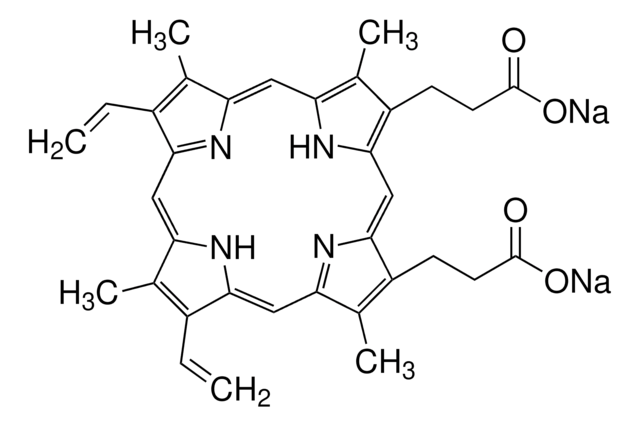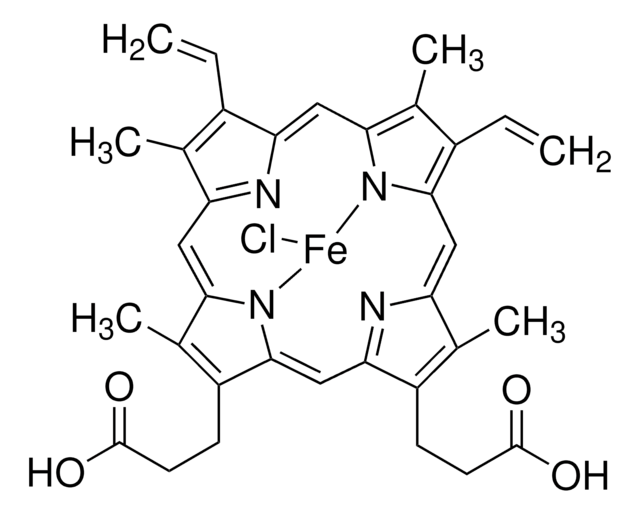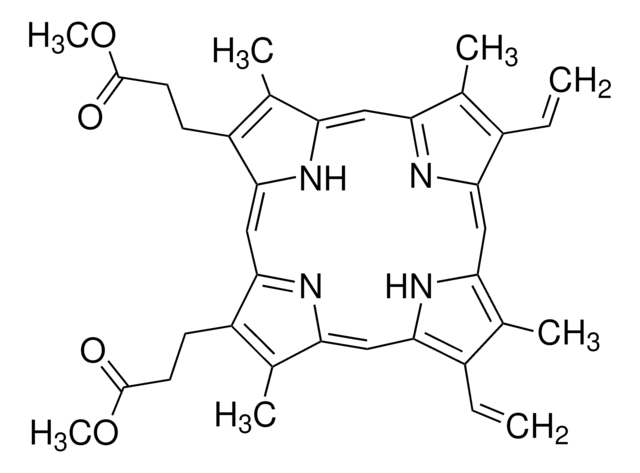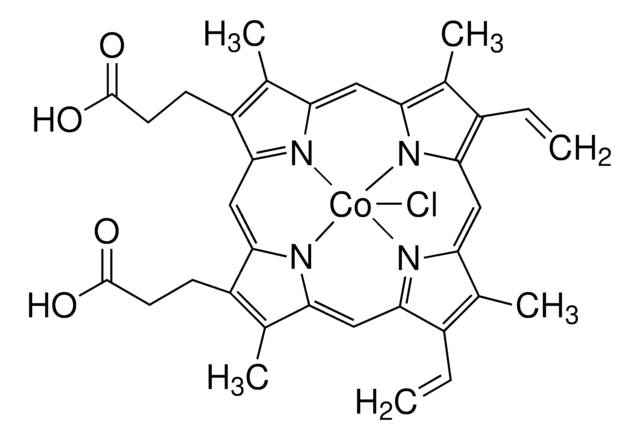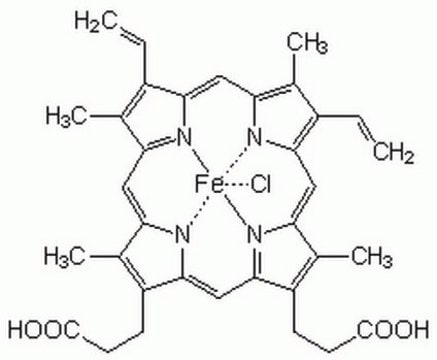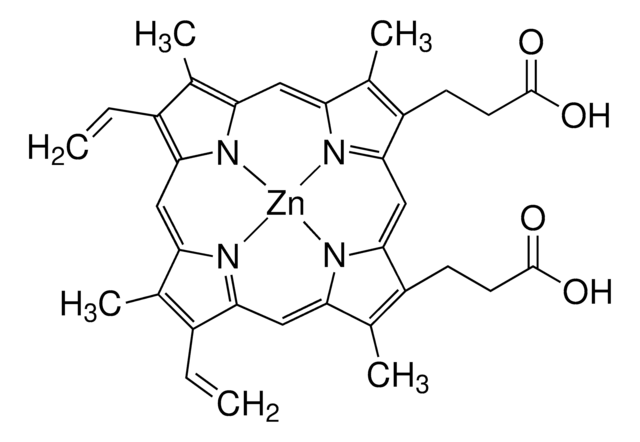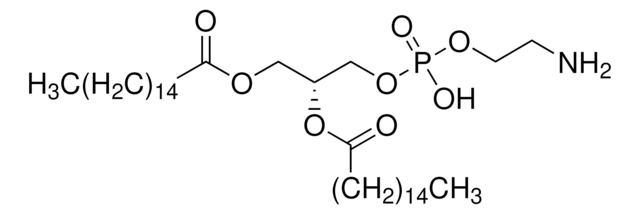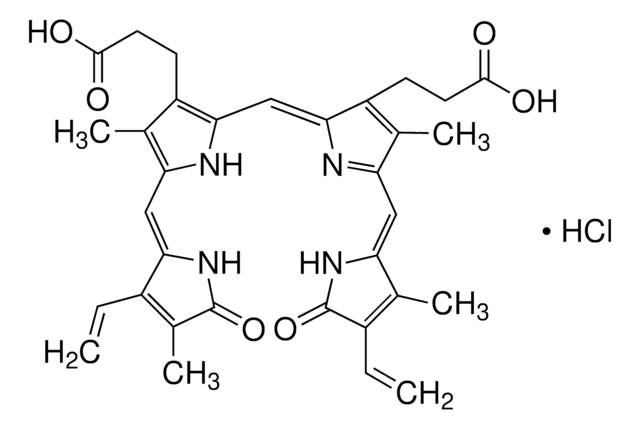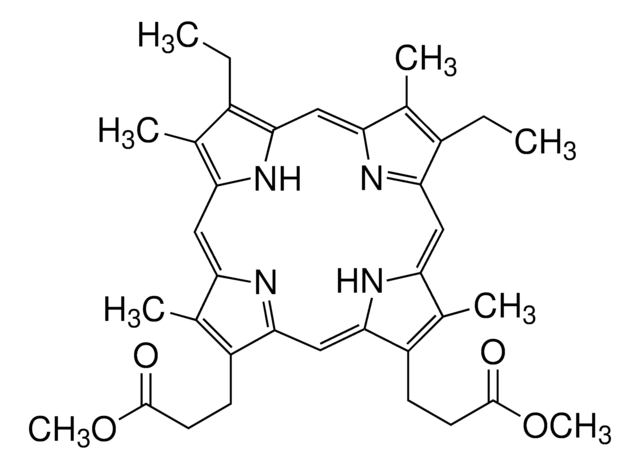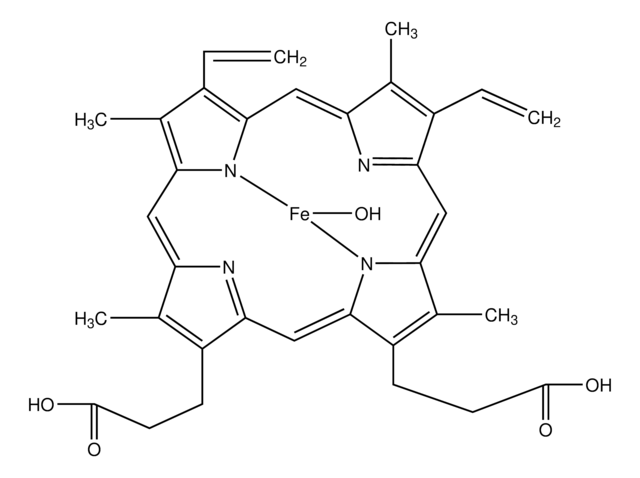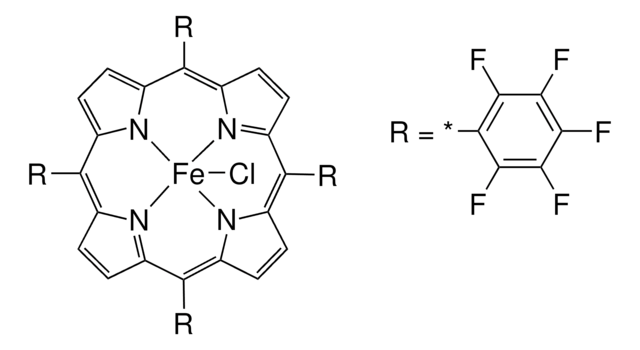P8293
Protoporphyrin IX
≥95%
Synonym(s):
3,7,12,17-Tetramethyl-8,13-divinyl-2,18-porphinedipropionic acid, Kammerer’s porphyrin, Ooporphyrin
About This Item
Recommended Products
Quality Level
Assay
≥95%
form
powder
fluorescence
λex 402 nm; λem 625 nm (bound to HRP)
λex 409 nm; λem 633 nm
storage temp.
2-8°C
SMILES string
Cc1c(CCC(O)=O)c2cc3[nH]c(cc4nc(cc5[nH]c(cc1n2)c(C)c5C=C)c(C)c4C=C)c(C)c3CCC(O)=O
InChI
1S/C34H34N4O4/c1-7-21-17(3)25-13-26-19(5)23(9-11-33(39)40)31(37-26)16-32-24(10-12-34(41)42)20(6)28(38-32)15-30-22(8-2)18(4)27(36-30)14-29(21)35-25/h7-8,13-16,35,38H,1-2,9-12H2,3-6H3,(H,39,40)(H,41,42)/b25-13-,26-13-,27-14-,28-15-,29-14-,30-15-,31-16-,32-16-
InChI key
KSFOVUSSGSKXFI-UJJXFSCMSA-N
Looking for similar products? Visit Product Comparison Guide
General description
Application
- as a standard in protoporphyrin assays
- in fluorescence spectra analysis
- to treat cells in cell culture to study heme-mediated ferroportin 1 transcription
Biochem/physiol Actions
related product
Signal Word
Warning
Hazard Statements
Precautionary Statements
Hazard Classifications
Eye Irrit. 2 - Skin Irrit. 2 - STOT SE 3
Target Organs
Respiratory system
Storage Class Code
11 - Combustible Solids
WGK
WGK 3
Flash Point(F)
Not applicable
Flash Point(C)
Not applicable
Personal Protective Equipment
Certificates of Analysis (COA)
Search for Certificates of Analysis (COA) by entering the products Lot/Batch Number. Lot and Batch Numbers can be found on a product’s label following the words ‘Lot’ or ‘Batch’.
Already Own This Product?
Find documentation for the products that you have recently purchased in the Document Library.
Customers Also Viewed
Our team of scientists has experience in all areas of research including Life Science, Material Science, Chemical Synthesis, Chromatography, Analytical and many others.
Contact Technical Service